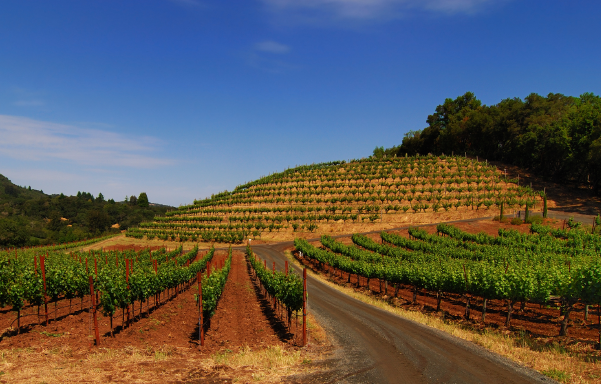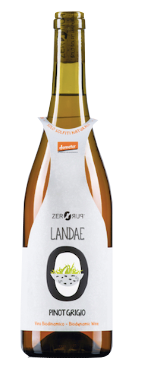(303) 468-8100

Zero Puro Pinot Grigio
750ml, $17.99

The color is cloudy light pink, tending to onion skin. The nose is of intense pink grapefruit fragrance and lychee comes as second. The taste is fresh, fruity and full-bodied.
In order to fully explore this wine term we must go back to 1924 and a lecture given by Dr. Rudolf Steiner. Dr. Steiner was speaking at a series of lectures convened by farmers after noticing a rapid decline in seed fertility, crop vitality and animal health. In response, Steiner presented the farm as a living organism: self-contained and self-sustaining, responsible for creating and maintaining its individual health and vitality. This was in sharp contrast to the view of the farm as a factory, able to boast production by importing chemical pesticides and synthetic fertilizers, which was largely responsible for the observations of depleted vitality noted by the farmers who sought Steiner's guidance. It was at this conference that Dr. Steiner spoke on his farming philosophy called “anthroposophy”.
Continued below...
Inkarri Malbec
750ml, $15.99

The Inkarri Estate Malbec is a biodynamically farmed wine that has a rich violet color with fruity aromas and flavors of boysenberry jam, blueberry pie, and hints of eucalyptus. The mouthfeel is fruity with a medium-to-full body. Pair with grilled tri-tip or eggplant.
Lunaria Ancestrale
750ml, Reg: $25.99 SALE:$21.99

Italy - The ""Pet-Nat"" follows the Ancestral Method-Complex & aromatic intensity with notes of Strawberry, ripe pear & apple. Certified Organic, Certified Biodynamic, Vegan, Natural Fermentation.
Ramoro Pinot Grigio,
750ml, Store purchase only

Coppery color, with an intense nose, floral, fruity with a yellow pulp, ethereal hints, fresh, intense and savory in the mouth. Pair with Sea food, cod, first courses with light sauces, white meats.
Anthroposophy, now known as biodynamics, has a lot in common with organic viticulture. It prohibits the use of chemical fertilizers and pest control. But, biodynamic pundits claim that it goes one step further. In organic viticulture one uses organic preparations to deal with the same problems that another would use a man made chemical for. Biodynamic proponents believe that they are building up the immune system of the grapes and working with the overall health of the grape rather than just treating symptoms.
This is accomplished through several means. “In day-to-day practice the goal is to create a farm system that is minimally dependent on imported materials, and instead meets its needs from the living dynamics of the farm itself. It is the biodiversity of the farm, organized so that the waste of one part of the farm becomes the energy for another, that results in an increase in the farm’s capacity for self-renewal and ultimately makes the farm sustainable.” Demeter Association
The practical application of this is specific preparations such as cow manure fermented in a cow horn, which is then buried in the vineyard and overwinters in the soil. Each of these preparations is known by a number (the aforementioned is number 500) due to the fact that these practices were outlawed in Nazi Germany and practitioners referred to the preparations in code. All preparations are diluted and then activated or energized by a special stirring process known as “Dynamization”.
This is not all. Biodynamic producers also plant, prune and harvest according to the phases of the moon. All activity is directed by the moon phases based on a quote from one of the first wine writers, Pliney the Elder back in around 70 AD, stated in his Natural History that the Moon "replenishes the earth; when she approaches it, she fills all bodies, while, when she recedes, she empties them." All quiet mystic, isn’t it?
Because of all of the seemingly metaphysical aspects of biodynamic wines there is much skepticism. I for one find it hard to believe that the special fermentations, moon phases and chants, or whatever, positively impact the wine. Having said this, some of the world’s most famous and expensive wineries practice these methods and swear by them. Domaine Romenee Conte and Bize-Leroy in Burgundy have been biodynamically cultivated for about a decade and are considered the pinnacle of Burgundy. They were considered great before this but claim that these practices have made them better. Who’s to say?
